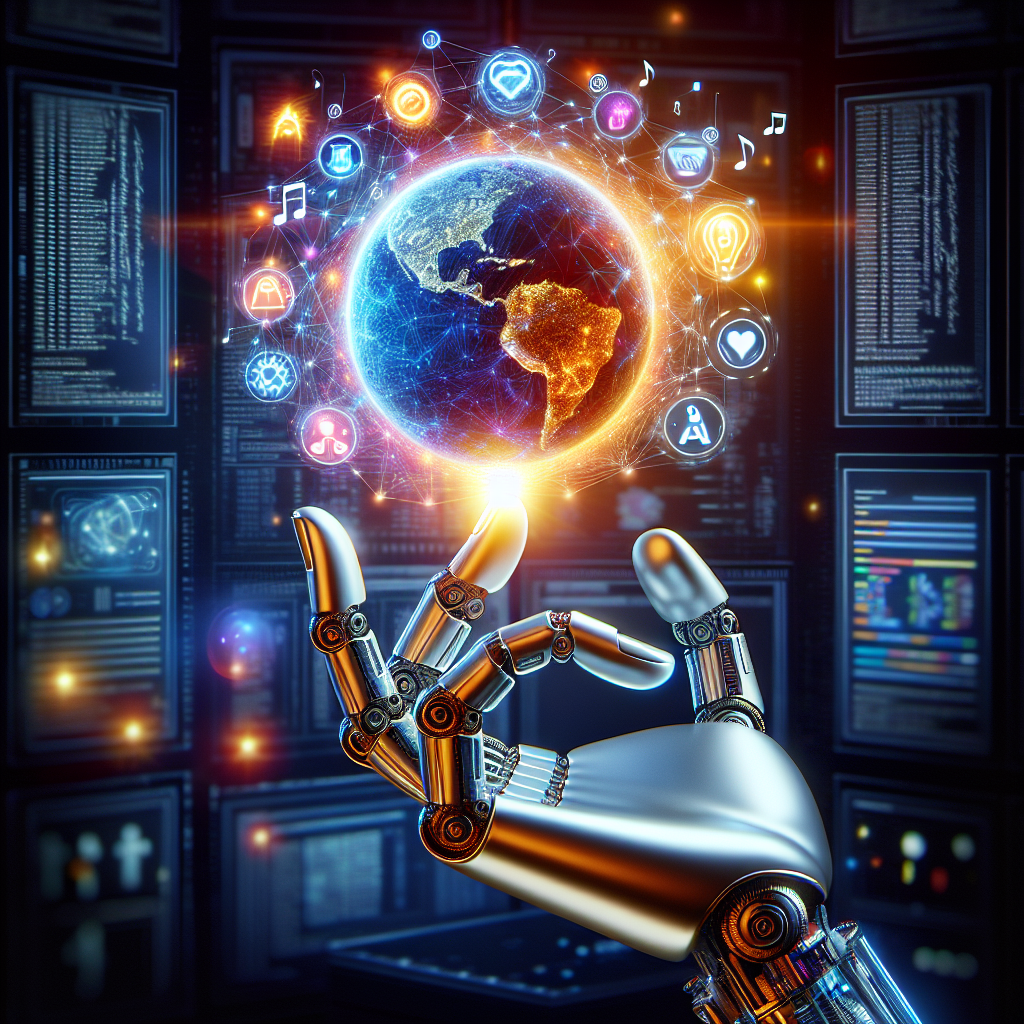The Influence of AI Development in Content Creation
Artificial Intelligence (AI) has become an integral part of various industries, and content creation is no exception. The development of AI technologies has revolutionized the way content is created, making it faster, more efficient, and more personalized than ever before. From generating written content to creating visual assets, AI has had a significant impact on the content creation process.
AI-powered tools are now being used by content creators to automate repetitive tasks, analyze data, and personalize content for specific audiences. This has not only increased productivity but also improved the quality of content being produced. In this article, we will explore the influence of AI development in content creation and how it is shaping the future of the industry.
Automating Content Generation
One of the most significant ways AI has influenced content creation is by automating the process of generating written content. AI-powered tools can now generate articles, blog posts, product descriptions, and even social media posts in a matter of minutes. These tools use natural language processing algorithms to analyze data, identify trends, and create engaging and informative content.
For example, tools like GPT-3 (Generative Pre-trained Transformer 3) can generate human-like text based on a given prompt. Content creators can use these tools to quickly generate drafts of articles or blog posts, which they can then edit and refine. This has significantly reduced the time and effort required to create written content, allowing creators to focus on more strategic tasks.
Personalizing Content for Specific Audiences
AI has also enabled content creators to personalize their content for specific audiences. By analyzing data such as user behavior, preferences, and demographics, AI-powered tools can create personalized content that resonates with each individual user. This helps content creators to deliver more relevant and engaging content, increasing user engagement and loyalty.
For example, AI-powered recommendation engines can analyze a user’s browsing history and preferences to recommend personalized content such as articles, videos, or products. This not only enhances the user experience but also increases the likelihood of conversion. Content creators can use AI to create personalized content that caters to the unique needs and interests of their audience, leading to higher engagement and retention rates.
Creating Visual Assets
In addition to written content, AI has also revolutionized the creation of visual assets such as images, videos, and graphics. AI-powered tools can now generate high-quality visuals using techniques such as image recognition, style transfer, and deep learning. These tools can create visually stunning content in a fraction of the time it would take a human designer, allowing content creators to produce more visual content at a faster pace.
For example, tools like Canva and Adobe Sensei use AI algorithms to generate designs, layouts, and graphics based on user inputs. Content creators can use these tools to create professional-looking visuals for their content without the need for advanced design skills. This has democratized the creation of visual content, making it accessible to a wider range of content creators.
Improving SEO and Content Optimization
AI has also played a crucial role in improving search engine optimization (SEO) and content optimization. AI-powered tools can analyze keywords, search trends, and user intent to optimize content for search engines and improve its visibility. These tools can help content creators identify relevant keywords, create meta tags, and structure content in a way that maximizes its searchability.
For example, tools like Surfer SEO and Clearscope use AI algorithms to analyze top-ranking content for a given keyword and provide recommendations for optimizing content. Content creators can use these tools to ensure their content ranks higher in search engine results pages, driving more traffic to their websites. AI has made it easier for content creators to optimize their content for SEO, improving its visibility and reach.
FAQs
1. How does AI improve content creation?
AI improves content creation by automating repetitive tasks, personalizing content for specific audiences, creating visual assets, and optimizing content for search engines. AI-powered tools can generate written content, analyze data, and recommend personalized content, leading to higher quality and more engaging content.
2. What are some popular AI-powered tools for content creation?
Some popular AI-powered tools for content creation include GPT-3 for generating written content, Canva and Adobe Sensei for creating visual assets, and Surfer SEO and Clearscope for optimizing content for search engines. These tools help content creators automate tasks, personalize content, and improve SEO.
3. How can content creators leverage AI for content creation?
Content creators can leverage AI for content creation by using AI-powered tools to automate tasks, analyze data, personalize content, and optimize for search engines. By incorporating AI into their content creation process, creators can produce higher quality and more engaging content that resonates with their audience.
4. What are the benefits of using AI in content creation?
Some benefits of using AI in content creation include increased productivity, improved quality of content, personalized content for specific audiences, and better SEO optimization. AI enables content creators to automate tasks, analyze data, and optimize content, leading to more efficient and effective content creation.
In conclusion, AI development has had a profound influence on content creation, transforming the way content is generated, personalized, and optimized. By leveraging AI-powered tools, content creators can create high-quality, engaging, and personalized content that resonates with their audience. As AI continues to evolve, its impact on content creation will only grow, shaping the future of the industry.

